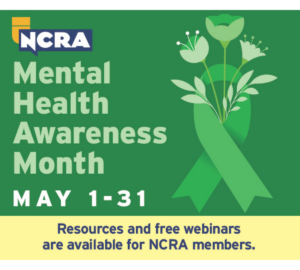By Elisa Cohen
I plunged into this experience with lots of intrigue and little forethought. The NCRA Professional Development department has a few steno machines in storage in varying levels of function. I picked the one that looked most complete; it turned out to be about 15 years old. I turned it on about eight hours before my first class and found that it needed a new disk to run – one that was obsolete enough to be unavailable at retail stores. I ordered one online and took my first class with the writer unplugged. It was like lip-synching during a choir rehearsal.
What I remember most about that first session is the chat dialog that runs concurrent with the online presentation. As soon as the chat went “live” at the start of the class, it seemed to explode with questions from all the participants about all aspects of the program, the profession, the content, the specifics of the steno writers, and more. Some questions were addressed on the chat or by the facilitators, but most couldn’t be answered immediately and would be handled throughout the program.
The second thing that stood out to me in that first session was my own curiosity. I kept thinking, “Why?” Why would pressing P and W together print as B? “PW” doesn’t sound anything like “B.” Why does the keyboard have S in three different places, but no N? Why are there only four vowels on the keyboard? A lot of these questions were answered once my steno writer was up and functioning by the following class.
In the weeks that followed that first session, I got pretty good at writing the letters as they were taught and typing with the cues from the facilitators. While the lesson on diphthongs challenged me, the hardest part was progressing past letters toward writing full words. During a drill of simple words, like cat, hat, hate, I posted a request in the chat for the facilitators to slow down. They did, after chuckling to each other. (This was nowhere near the speed people actually speak!)
I will confess that I did not do the one thing that all good students must do, which is practice. I was mostly a spectator during the class, and that became very rewarding. The chat dialog throughout the class continued to inspire, with fellow classmates asking questions and encouraging each other along with the facilitators. If this group of participants is any indication, the future of the profession looks bright.
Elisa Cohen is NCRA’s Marketing Manager.








